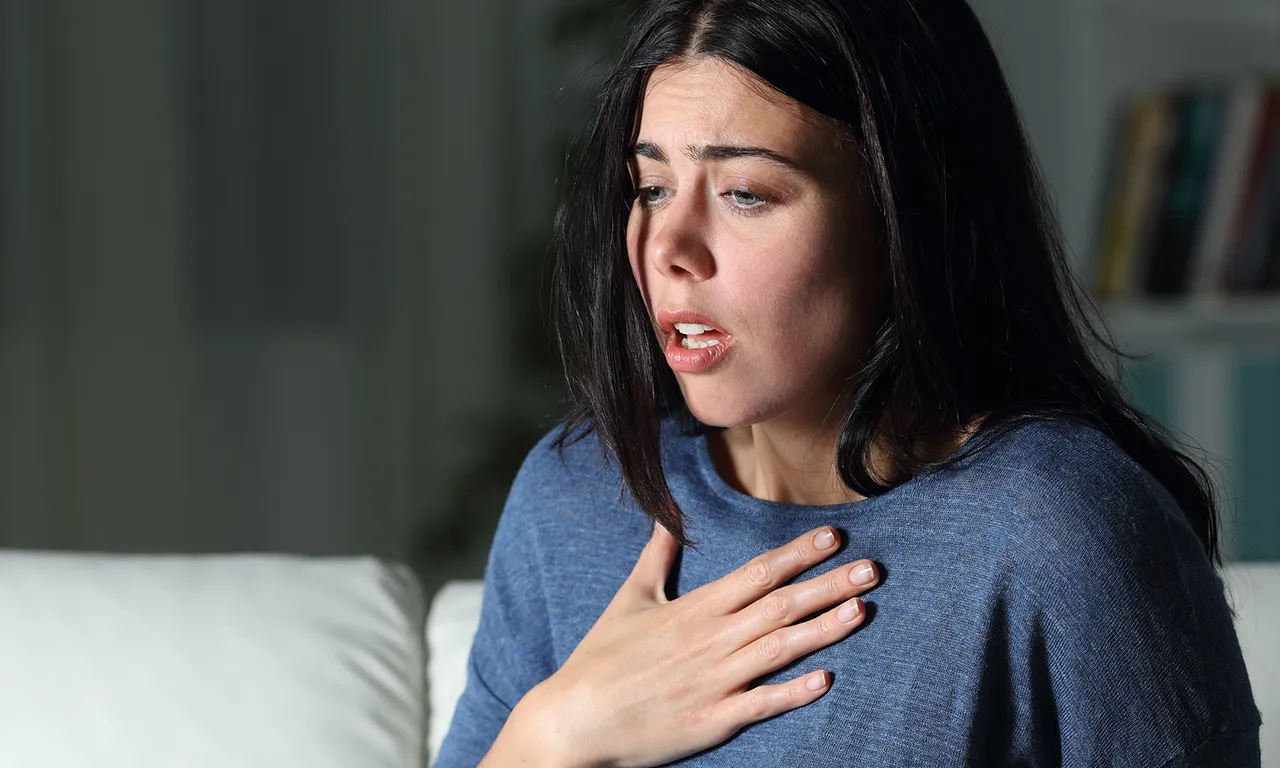
Source
There are certain moments in life that come across in an absolutely uncertain way, totally unexpected...it can be anything...just anything...and it gives a big blow to our mind...body and soul...was are not trained to attend such situations and states...therefore our body and mind are unable to handle it in a right manner at that point of time, resulting in a situation that can be just like a PANIC...that attacks us suddenly...and we get PANIC ATTACKS...!!!
Its very hard at that very moment...we dont know what do...hope to cope it up...we are clueless and unable to bear such pressure...some succumb and some try to understand and follow an appropriate methodology to control it gradually...Yes it takes time...definitely it does !!! But is not IMPOSSIBLE !!!
If you get into such kind of situation...you too can control it be following certain preventive measures.
#Panic-attacks are intense, sudden episodes of fear or discomfort that can be overwhelming and #unpredictable.

Source
Panic attacks can occur without any apparent trigger or in response to a specific situation, and can be a symptom of #panic #disorder, a type of #anxiety #disorder.
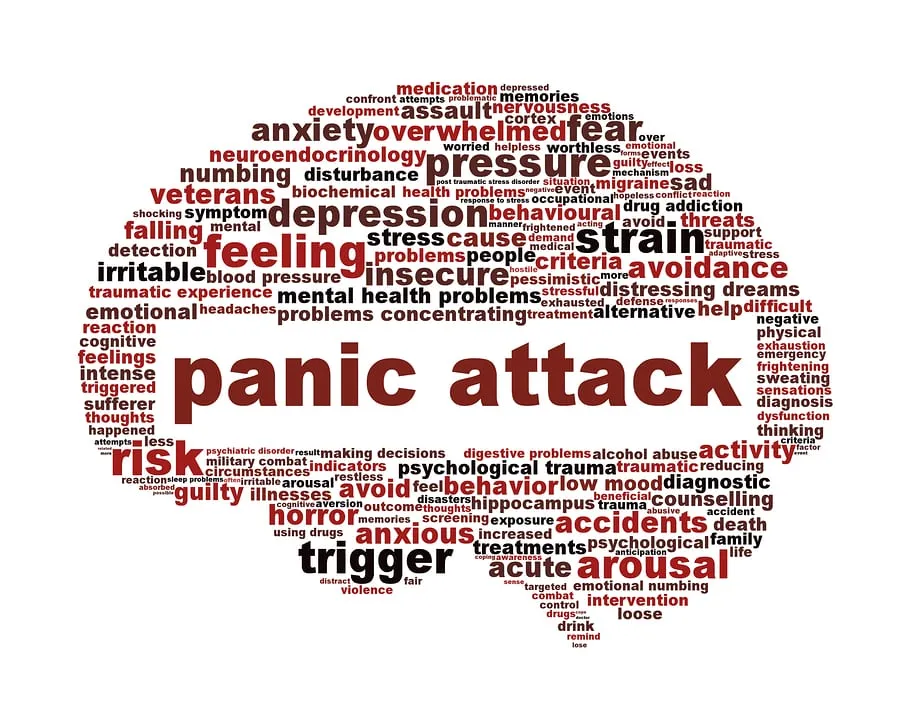
Source
There is no single cause of panic attacks, but rather a combination of factors that can contribute to their development. Some possible causes of panic attacks include:
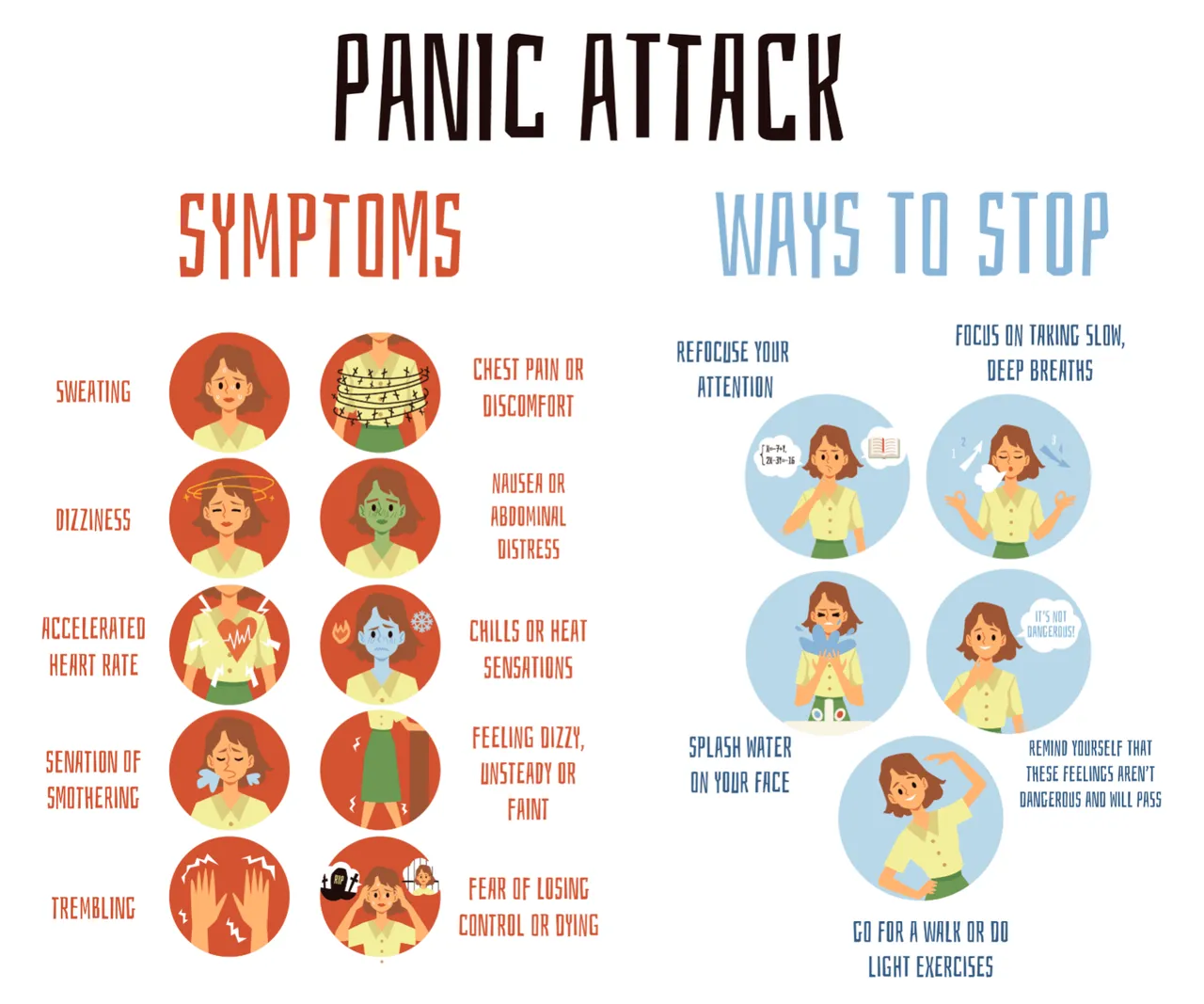
Source
Genetics
Some research suggests that there may be a genetic component to panic attacks and panic disorder, meaning that it may be more likely to develop if someone in your family also experiences panic attacks.
Brain chemistry
Imbalances in neurotransmitters, such as serotonin and norepinephrine, can contribute to the development of panic attacks.
Environmental factors
Stressful life events, such as #trauma or major life changes, can increase the risk of developing panic attacks.
Medical conditions
Certain medical conditions, such as thyroid problems or heart disease, can contribute to the development of panic attacks.
Controlling Panic Attacks
While panic attacks can be overwhelming and scary, there are several strategies that can be used to help control them. These include:
Deep breathing
Focusing on slow, deep breaths can help to calm the body and reduce the symptoms of panic attacks.
Mindfulness
Practicing mindfulness techniques, such as #meditation or yoga, can help to reduce #anxiety and #stress, which can contribute to panic attacks.
Progressive muscle relaxation
Tensing and then relaxing different muscle groups can help to reduce tension in the body and promote relaxation.
Cognitive-behavioral therapy (CBT):
This type of therapy involves identifying and changing negative thought patterns and behaviors that contribute to panic attacks.
Medication
Certain medications, such as selective serotonin reuptake inhibitors (SSRIs) or benzodiazepines, can be used to help control panic attacks.
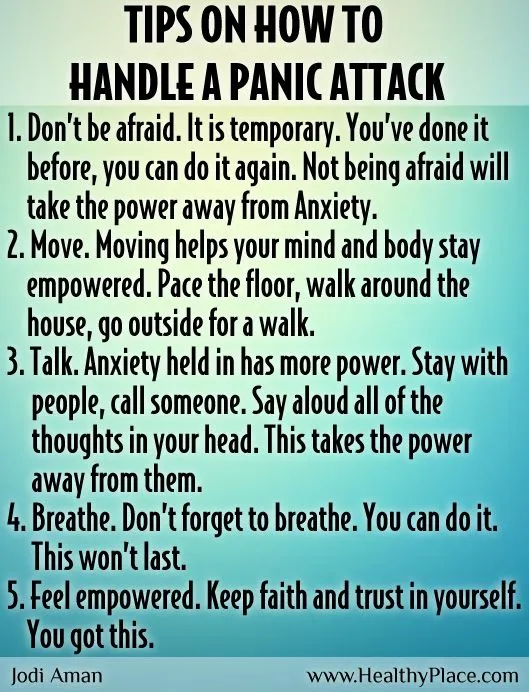
Source
Preventing Panic Attacks
In addition to the above strategies for controlling panic attacks, there are also several things that can be done to prevent them from occurring in the first place. These include:
Managing stress
Engaging in stress-reducing activities, such as exercise or hobbies, can help to reduce the risk of panic attacks.
Avoiding triggers
Identifying and avoiding triggers that can cause panic attacks, such as certain situations or substances, can help to prevent them from occurring.
Getting enough sleep
Getting enough sleep is important for overall mental and physical health, and can also help to reduce the risk of panic attacks.
Seeking professional help
If panic attacks are interfering with daily life or causing significant distress, it may be helpful to seek professional help, such as therapy or medication.
Panic attacks can be a frightening and overwhelming experience, but there are several strategies that can be used to control and prevent them.
These include deep breathing, mindfulness, progressive muscle relaxation, cognitive-behavioral therapy, medication, managing stress, avoiding triggers, getting enough sleep, and seeking professional help.
By understanding the causes of panic attacks and implementing effective strategies for control and prevention, it is possible to manage and overcome this challenging condition.
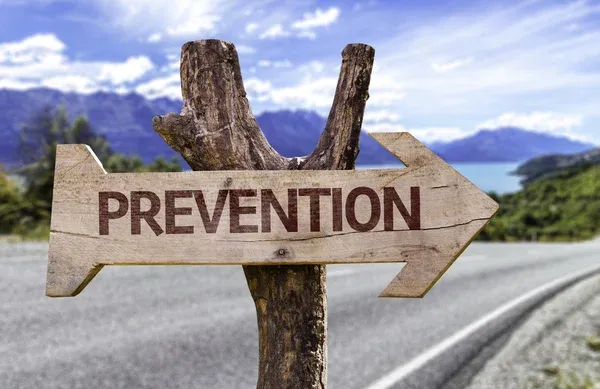
Source
Preventive Measures
Manage stress through activities like exercise, #meditation, or hobbies.
Identify and avoid triggers that can cause #panic-attacks, such as certain #situations or substances.
Get enough sleep to support overall mental and physical health.
Seek professional help, such as therapy or medication, if panic attacks are interfering with daily life or causing significant distress.
Practice mindfulness techniques, such as meditation or yoga, to reduce anxiety and stress.
Consider cognitive-behavioral therapy (CBT) to identify and change negative thought patterns and behaviors that contribute to panic attacks.
#Thank You!
@amitsharma



